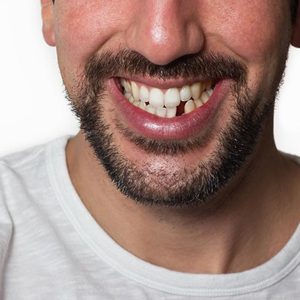
You know what to do if you have a high fever, chest pain, lacerations, and broken bones — they all scream emergency room. But knowing what qualifies as a dental emergency isn’t as easy to figure out. How do you know if it’s something that can wait until morning or the next available appointment, or if you need to see a dentist right away?
Drs. Malcolm Murray and Ranya Ghumrawi here at MJM Family and Cosmetic Dentistry guide you through the decision process and handle any dental emergency you might face. Whether you need to have a tooth repaired or restored, our team can give you the professional and compassionate care you deserve, whether you schedule an appointment or come in with an emergency.
Of course, the best way to approach dental emergencies is to prevent them altogether. Here are a few of the most common dental emergencies and tips on how to avoid them if possible.
Chipped, cracked, or knocked out teeth
The most obvious dental emergency is a broken tooth. Whether it’s only cracked, sustained a chip, or has been knocked clean out of your mouth, this constitutes a dental emergency. A chipped or cracked tooth likely means you’ve been hit in the face, so make sure to use an ice pack to reduce pain and swelling. If you’ve lost the tooth:
What you should do
- Don’t touch the root
- Try to place it back in the socket
- Keep it wet in your mouth or a bag with some milk
How you could have prevented it
- Wear a mouthguard when playing sports
- Don’t chew ice or popcorn kernels
- Don’t chew on items that aren’t food, like pens and pencils
- Don’t use your teeth as scissors or tools
Tooth and gum infections
Normally, an infection doesn’t qualify as an emergency. But if you’ve let it go untreated for too long, it could get to that point, and you develop a very painful toothache. An infection lets you know it’s an emergency when it’s too painful to bite down and/or you see an abscess on your gums near the painful tooth.
What you should do
- Rinse your mouth with warm water
- Avoid using medications until our doctors can evaluate it
- Use a cold compress on your cheek to control pain and inflammation
How you could have prevented it
- Keep your regular appointments for checkups and cleanings
- Practice good oral hygiene, including flossing
- Come in to see us before the pain gets out of hand
Damaged dentures or braces
If you’ve damaged your braces or dentures, you’ve likely been in some kind of accident. If necessary, seek medical treatment immediately for any cuts you may have in your mouth.
What you should do
- Check your appliances for protruding wires or broken parts that may cause further damage
- Use dental wax or a soft tissue to cover jagged parts until you get help
- Bend or clip wires that might cut you
How you could have prevented it
- Wear a mouthguard if you play sports
- Remove your dentures when engaging in activities that may cause a blow to the face
These are the most common dental emergencies, but life happens and so do accidents, so you may encounter a situation we haven’t listed here. If you’re unsure whether your pain calls for an emergency visit to our office, give us a call. We can help you decide what to do.
It’s a good idea to keep our phone number on speed dial so you’re prepared if and when an emergency happens.
If you’re not already one of our patients, we’d love to meet you. Call today to make a new patient appointment or schedule it online.







